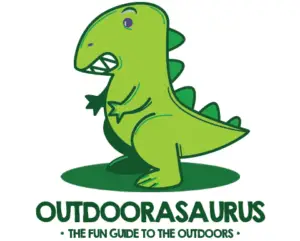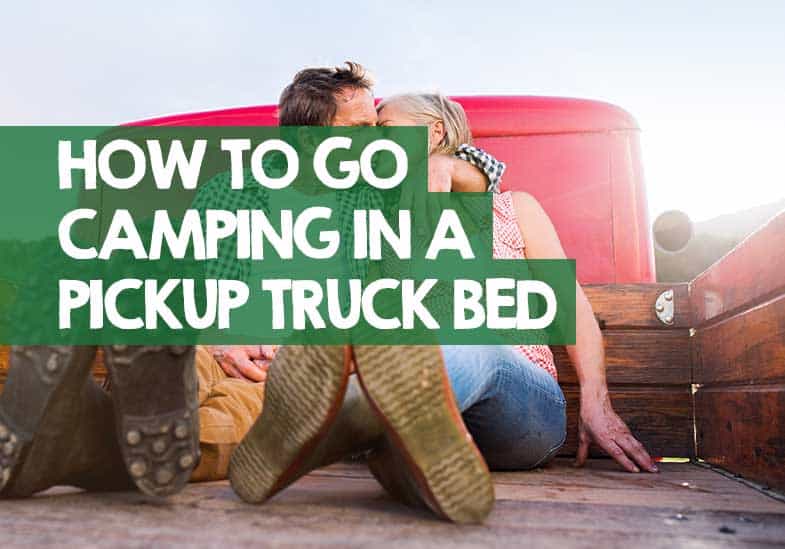If you’re an adventurous person, camping in a pickup truck is a great alternative to buying a luxurious RV. Truck bed camping provides several key advantages over traditional tent camping. It’s more comfortable, secure, convenient, and inexpensive. With a few thousand dollars, you can optimize your truck bed into one of the most comfortable camping spaces to be in.
You don’t have to worry about having a full-size truck. A well-prepared medium-sized truck works fine. Larger trucks can even be troublesome as they provide less mobility, consume a lot of gas, and can be out of place on smaller roads due to their weight and size.
This guide will provide information on the bare minimums that you need to ensure you get the best camping experience. A comfortable living space starts with the right strategy. There are compromises, of course, but knowing what you’ll need provides a starting point to getting the most out of your truck.
What you’ll need to go camping in a pickup truck
Some of the essential items you’ll need include:
1. A camper shell/truck canopy or a truck bed tent
A camper shell provides adequate and secure space for your camping needs. When shopping for one, remember that it’s not a one-size-fits-all. Camper shells are truck-specific and come in a wide variety. Those with bubble tops and windows are great options. You don’t want to spend the whole night in an enclosed coffin. Truck bed tents are also a great alternative if you’re on a tight budget. Unlike camper shells, however, they are less secure, less weather-resistant, and must be disassembled when driving.
2. A truck bed camping platform
Your air mattress is going to need a bed frame if you wish to have a better camping experience. With bed platforms, you can prevent the wheel wells from invading your space and get adequate space for storage underneath. Placing your mattress in direct contact with the truck bed limits your insulation space. Some of the materials you’ll need for construction include bolts, t-nuts, screws, hinges, a carpet, duct tape, a table saw, electric drill, a staple gun, and ratchet, as well as bolt sockets. Use 2×4 boards to construct a frame that lies just above the wheels wells to widen the space available. This elevates you above the cold metal and provides the much-needed storage for your items.
3. Suitable bedding
A quality sleeping pad/bag can have you sleeping like a baby without spending too much money or adding unwanted weight to your truck. For a sleeping pad, buy one that self-inflates for convenience and warmth. An air mattress that fits the bed camping platform is also a great option. Pick one that is light and durable. You can add a pillow, but blankets and clothes can work just fine.
4. Kitchen appliances
Most trucks feature a pre-installed tailgate table that can be used as a cooking platform. However, most of them are uneven. Consider fixing a piece of plywood on your truck’s tailgate to provide a flat surface. For a complete setup, carry your camping stove, silverware, can opener, cutting board, sponges, 2 non-stick pans/pots/ tin foil, and dish soap. If you have extra room, carry a small cooler for your cheese and meat.
5. Accessories
The most important thing when picking your accessories is to prioritize. There are plenty of options when it comes to camping accessories. If you’re not careful, you could easily go bankrupt. Essentials that you’ll definitely want to have include camp chairs, dishware, ample water supply, two flashlights, jumper cables, duct tape, a 400W power inverter, 2 or more LED lanterns, one fire extinguisher, road safety reflectors, matches, compass, extra batteries, chargers for your devices, hiking shoes, and a rain jacket. Once you have those, consider adding items such as a camera for a better experience. Prepare a list to ensure that you’re not missing anything before you leave.
Where can you go camping in a pickup truck?
There are designated campgrounds all around the US for pickup trucks, cars, tents, and RVs. Such grounds are normally well-prepared with a fire pit, a picnic table, electricity and a nearby source of water.
Several national forests also offer free camping spots. This is also known as dispersed camping where you can live out of your car or pickup truck for a period of up to16 days. No amenities are provided. Campers have to sort out their trash collection, water, and restroom needs. The restrictions vary from forest to forest. It’s advisable to visit your local ranger station or give them a call to inform them about your stay.
Keeping the truck bed clean
Your pickup truck bed is going to be your home away from home. It can get messy living in there while out in the wild. Before leaving, do a thorough cleaning of the truck. Uninstall accessories such as cargo bars and toolboxes to reach the smallest of places. This will also ensure that you get enough space for your bed platform.
Maintain cleanliness by making sure that no water, dust, rain, feathers, or gravel makes it into the truck bed. Your camper shell/tent should be well-sealed against external elements. Use recommended gaskets, seals, and proper weather stripping when installing your camper shell. Seal up worn out spaces and do replacements where necessary. Sliding windows should remain shut when moving around dirt roads but, do make sure they are open in the evening to let in some air.
Consider traveling with bags that will help you stay organized. Avoid throwing items around and forgetting about them. Stack your boots and all dirty items in a trash bag. You can broom or vacuum your truck bed every night before going to sleep. To maintain a clean camping environment, consider using biodegradable soap for your dishwashing and throwing leftovers in a garbage bin. This will prevent you from attracting animals and destroying the environment.
Keeping animals and bugs away
If you’re out to hunt, animals are what you’ll be after in the wild. If this is not the case, however, you’ll want to keep animals and bugs away as much as possible. Bears can break into your truck to get anything that smells good. Hang your food high up a tree if you can. This will keep most animals away and provide a safe distance from your truck.
Edibles such as chocolate bars and other leftovers call for a lot of company from bugs. You also run the risk of having flying scavengers and other wild animals as visitors. Stash edibles, toiletries, and ice chests in steel boxes. Use a bug-proof bin to dispose of unwanted leftovers and toiletries. Always make sure that your kitchen area is in sight.
If interested in some fishing, it means that you’ll be spending time in mosquito-infested environments. Consider carrying biodegradable mosquito repellant cream to keep mosquitoes and other bugs away. Avoid leaving stagnant water in basins and containers around your truck. This will prevent you from providing a home for insects.
The last word
As you go camping with your pickup truck, make sure that you’ve carried everything that you need. Have a checklist that you can go through before you leave. Also, take note of prevailing weather patterns. Carry enough clothes and blankets even when it’s hot because overnight temperatures can be shockingly low in such environments.
It’s better to stay safe than sorry.
Furthermore, if the clothes turn out to be too many, you can always store them in the cab or under your bed camping platform. Weather conditions might also change during long trips, which means you need to plan in advance. As for the other items, carry as much as you can. It’s better to have items that you don’t need than to need items you don’t have. Don’t let this prevent you from having some lasting memories as you camp.

